The things to buy in Bhutan reflect the country’s deep-rooted traditions and skilled craftsmanship. Bhutan, situated in the Eastern Himalayas, focuses on cultural preservation and sustainable development. This landlocked kingdom borders India and China and maintains strict tourism regulations. Its local products often carry spiritual, historical, or regional significance. From textiles and wooden crafts to rare beads and unique stamps, Bhutanese markets offer authentic goods. Each item purchased supports artisans and keeps Bhutan’s heritage alive. Whether in Thimphu or Paro, you’ll discover a wide selection of locally made treasures worth exploring.
Top 10 Things To Buy In Bhutan
Shopping for traditional crafts and locally made items is among the essential things to buy in Bhutan. Here’s a curated list of unique finds.
1. Bhutanese Handmade Paper
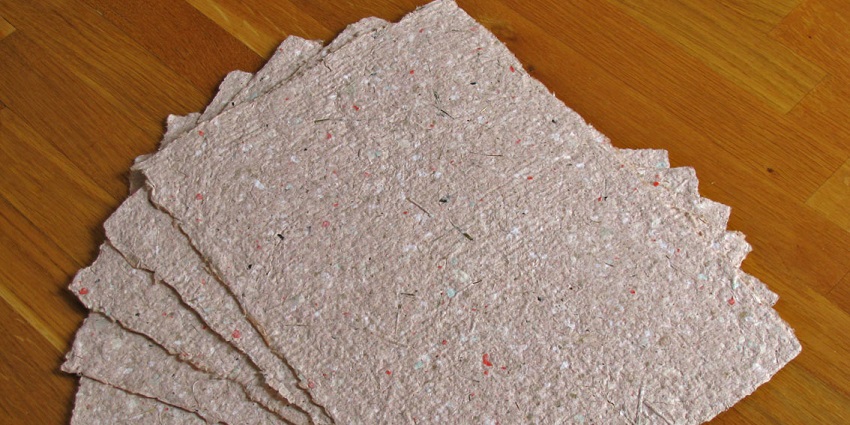
Photo: Goran Anđelić / Wikimedia Commons / Image For Representation Only
Artisans make this paper, traditionally known as “Deh-sho,” from the bark of the Daphne plan. It has remained a cultural staple for centuries. Its preparation involves soaking, pulping, and pressing using simple water-powered devices, followed by sun drying. Today, artisans craft it into modern stationery while retaining its original essence. Favoured for its resistance to insects and unique natural scent, this eco-conscious paper makes a meaningful souvenir. Its textured surface adds charm to everyday use while preserving Bhutan’s heritage.
Where To Buy: Jungshi Handmade Paper Factory, Thimphu
Cost: BTN 149 – 799 / ₹150 – 800
2. Coloured Carved Masks
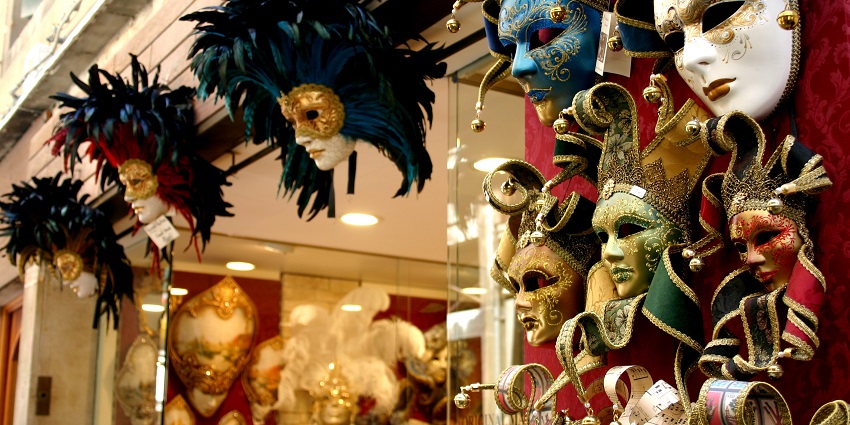
Photo: CC0 Public Domain / pxhere / Image For Representation Only
These handcrafted wooden masks hold significance far beyond decoration. Deeply connected to Bhutanese dance rituals and spiritual ceremonies, they represent divine beings, mythic animals, and local folklore. Every mask is shaped and painted by hand, often taking weeks to complete. Traditionally worn by masked dancers, these art pieces have gained popularity among travellers for their cultural depth. Owning one connects you to centuries of storytelling through craftsmanship. They also reflect the region’s unique artistic methods passed down through generations.
Where To Buy: Weekend Market, Thimphu and local craft stores in Paro
Price: BTN 499 – 2498 / ₹500 – 2,500
3. Hand-Woven Textiles
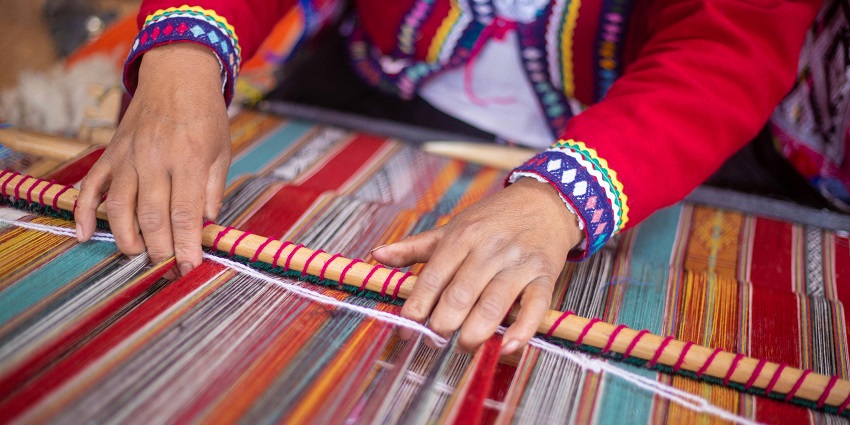
Photo: Rodolfo Clix / Pexels / Image For Representation Only
Bhutanese weavers create these intricate fabrics using back-strap looms in rural households. Every thread carries tradition, where the process involves extracting natural dyes from plants and minerals. The patterns often symbolise regional identity, with garments such as the kira and gho becoming national icons. The art of weaving supports many families and preserves an important social practice. Each fabric piece reflects the weaver’s skill and patience, often taking months to complete. Collectors and fashion enthusiasts highly value these textiles.
Where To Buy: Textile Museum gift shop, Thimphu and local co-ops in Trashigang
Price: BTN 1998 – 9994 / ₹2,000 – 10,000
4. Bhutan Red Rice
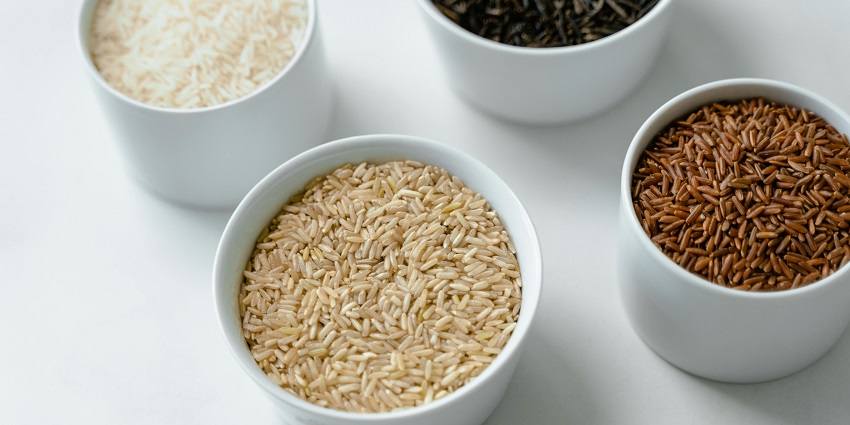
Photo: MART PRODUCTION / Pexels / Image For Representation Only
Bhutan Red Rice grows in the fertile Paro valleys, nourished by glacial water and free from chemical fertilisers. Known for its slightly chewy consistency and earthy taste, it is a staple in most Bhutanese households. This rice cooks faster than white varieties and is rich in nutrients such as iron and magnesium. This rice complements local dishes, and health-conscious eaters widely recommend it. More than a food product, it reflects sustainable farming traditions and contributes to local livelihoods.
Where To Buy: Local markets in Paro and Thimphu
Price: BTN 199 – 399 / ₹200 – 400
5. Gold And Silver Jewellery
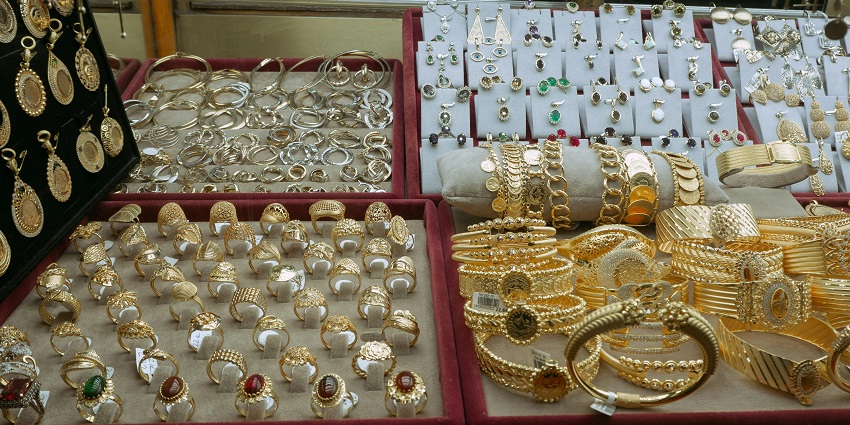
Photo: Meruyert Gonullu / Pexels / Image For Representation Only
Bhutanese jewellery is rich in cultural meaning and shaped by centuries-old techniques. Craftsmen hand-forge each piece using tools passed through families, incorporating religious symbols such as the Dorje and lotus. These items often blend stones such as turquoise or coral with precious metals, producing pieces that are worn during festivals or family ceremonies. Collectors appreciate the historical value and craftsmanship embedded in each ornament. Whether bought as adornments or keepsakes, this jewellery represents the artistic depth of regional metalwork.
Where To Buy: Norzin Lam, Thimphu; private artisan shops in Bumthang
Price: BTN 999 – 14992 / ₹1,000 – 15,000
6. Sculptures And Buddhist Paintings
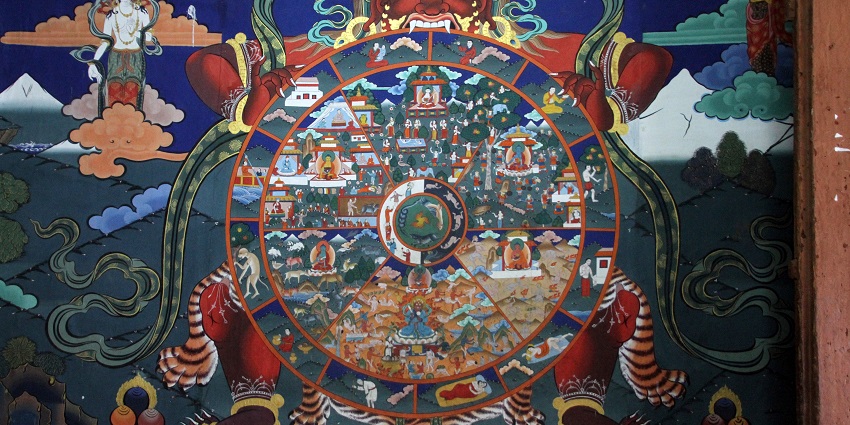
Photo: Gerd Eichmann / Wikimedia Commons
Among the best things to shop in Bhutan for those interested in sacred art are the handmade sculptures and thangkas. These works depict stories from Buddhist teachings, and spiritual seekers and collectors revere them. Artisans cast sculptures in bronze or mould them from clay, while they create thangkas using fine brushes and mineral-based pigments. Each item involves time-intensive methods and precise detailing. Home altars or meditative visuals often utilise these items, linking tradition to mindful practice.
Where To Buy: National Institute for Zorig Chusum, Thimphu and monasteries and art studios
Price: BTN 1998 – 29984 / ₹2,000 – 30,000
7. Dzi Beads—Malayan Beads
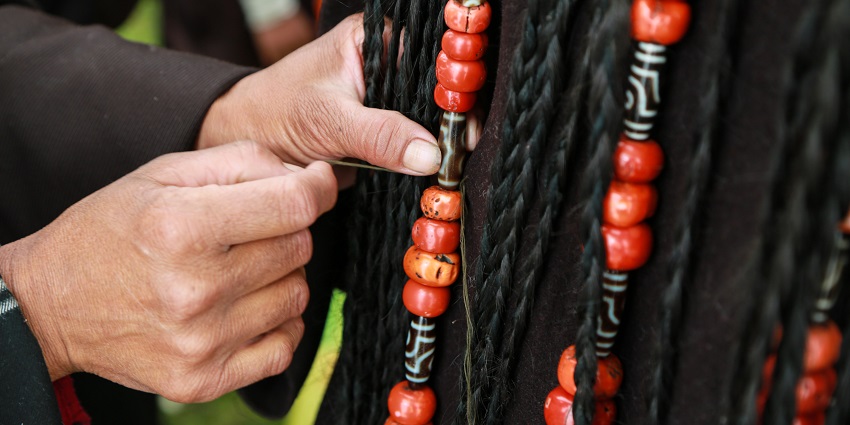
Photo: Dawa Drolma / Wikimedia Commons
Many Bhutanese treasure Dzi beads for their spiritual symbolism and wear them as protective charms. Many believe these beads attract positive energy, and families frequently hand them down. The authentic versions, usually dark with white patterned circles or stripes, are incredibly rare and command high prices. Replicas offer a more affordable option for visitors seeking meaningful keepsakes. Whether valued for cultural reasons or worn for belief, Dzi beads hold deep-rooted significance in regional traditions.
Where To Buy: Antique shops in Thimphu and spiritual gift stores
Price: BTN 499 / ₹500 for replicas and BTN 49973 / ₹50,000 for original beads
8. Dappa—Handmade Wooden Bowls
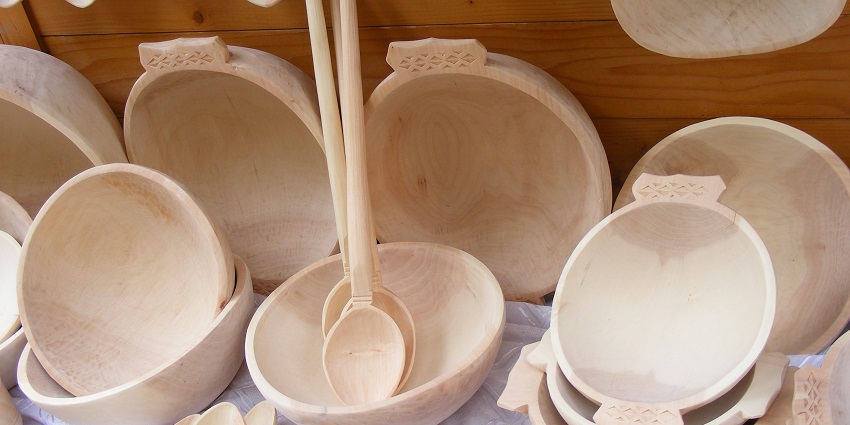
Photo: CC0 Public Domain / pxhere / Image For Representation Only
Dappa are carved wooden bowls crafted from a single block of seasoned wood, often walnut or maple. Produced mostly in central Bhutan, they reflect practical design combined with artisan pride. Used during meals and ceremonies, these bowls are durable and have a naturally smooth finish. To preserve the wood’s natural quality, artisans sand, polish, and sometimes lightly oil each piece. These bowls appeal to collectors interested in functional crafts and serve as excellent kitchenware or display items for global shoppers.
Where To Buy: Craft centres in Bumthang and handicraft shops in Trongsa
Price: BTN 299 – 1499 / ₹300 – 1,500
9. Bhutan Postal Stamps
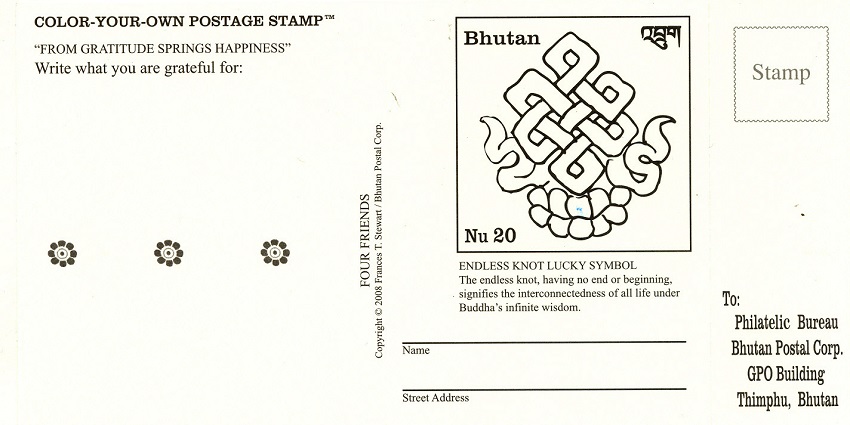
Photo: Leovdvxxx / Wikimedia Commons / Image For Representation Only
People globally recognise Bhutanese stamps for their creative formats, including 3D visuals, playable vinyl records, and aromatic designs. These stamps often commemorate important events or feature regional themes such as local fauna, achievements, or royalty. Perfect for philatelists and those looking for compact souvenirs, the stamps reflect artistic experimentation within official printing. The government releases each edition in limited quantities, making them highly collectable. They are also an educational keepsake, offering insight into Bhutan’s cultural priorities and innovation.
Where To Buy: General Post Office, Thimphu and Philately counters
Price: BTN 49 – 499 / ₹50 – 500
10. Cane And Bamboo Handicrafts
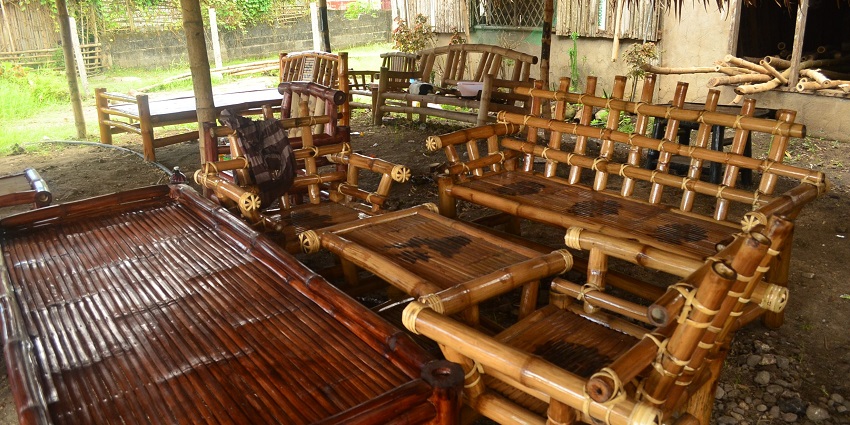
Photo: Yawrei / Wikimedia Commons
Among the famous things to purchase in Bhutan are cane and bamboo items crafted in regions such as Zhemgang. Artisans use time-honoured methods to create goods such as baskets, trays, and storage pieces that serve everyday functions. These items are popular among locals and tourists for their practicality and low environmental impact. Their lightweight structure makes them convenient to carry and use. Whether used for organising homes or decorating spaces, these crafts are a fine example of skilled handwork from southern Bhutan.
Where To Buy: Craft markets in Gelephu and Thimphu
Price: BTN 99 – 799 / ₹100 – ₹800
The things to buy in Bhutan offer a rich mix of utility, artistry, and cultural meaning. Handwoven textiles, prayer wheels, wooden masks, and Dzi beads, each item deeply reflects Bhutanese tradition. From a shopper’s view, these are not just souvenirs—they are expressions of a community’s identity and effort. Exploring local markets gives insight into Bhutan’s creative spirit and beliefs. Plan a trip with TripXL and begin your discovery with purpose and understanding.
Cover Photo: Prof Ranga Sai / Wikimedia Commons


 WhatsApp
WhatsApp
 Twitter
Twitter









